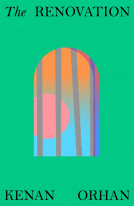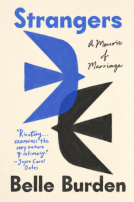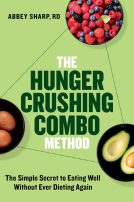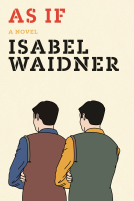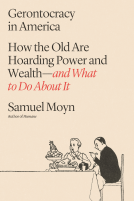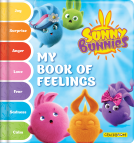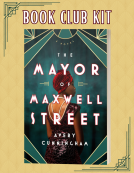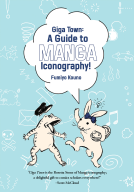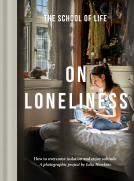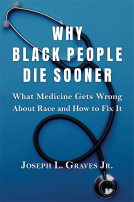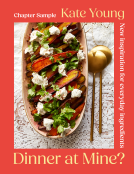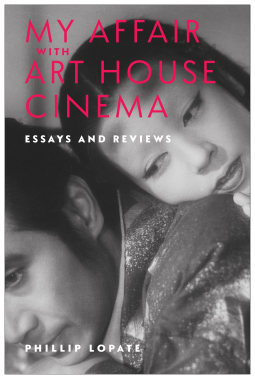
My Affair with Art House Cinema
Essays and Reviews
by Phillip Lopate
This title was previously available on NetGalley and is now archived.
Send NetGalley books directly to your Kindle or Kindle app
1
To read on a Kindle or Kindle app, please add kindle@netgalley.com as an approved email address to receive files in your Amazon account. Click here for step-by-step instructions.
2
Also find your Kindle email address within your Amazon account, and enter it here.
Pub Date Jul 02 2024 | Archive Date Oct 09 2024
Talking about this book? Use #ColumbiaUP #NetGalley. More hashtag tips!
Description
Phillip Lopate fell hard for the movies as an adolescent. As he matured into an acclaimed critic and essayist, his infatuation deepened into a lifelong passion. My Affair with Art House Cinema presents Lopate’s selected essays and reviews from the last quarter century, inviting readers to experience films he found exhilarating, tantalizing, and beguiling—and sometimes disappointing or frustrating—through his keen eyes.
In an essayist’s sinuous prose style, Lopate captures the formal mastery, artistic imagination, and emotional intensity of art house essentials like Yasujirō Ozu’s Late Spring, David Lynch’s Mulholland Drive, and Andrei Tarkovsky’s Solaris, as well as works by contemporary filmmakers such as Maren Ade, Hong Sang-soo, Hou Hsiao-hsien, Christian Petzold, Paolo Sorrentino, and Jafar Panahi. Essays explore Chantal Akerman’s rigorous honesty, Ingmar Bergman’s intimacy, Abbas Kiarostami’s playfulness, Kenji Mizoguchi’s visual style, and Frederick Wiseman’s vision of the human condition. Lopate also reflects on the work of fellow critics, including Roger Ebert, Pauline Kael, and Jonathan Rosenbaum. His considered, at times contrarian critiques and celebrations will inspire readers to watch or rewatch these films. Above all, this book showcases Lopate’s passionate advocacy for not only particular films and directors but also the joys and value of a filmgoing culture.
Advance Praise
"Phillip Lopate is the model of the eloquent and incisive critic. His expertise in the personal essay gives his film criticism the depth and precision of finely crafted literature. He brings to the task a keen intelligence, broad knowledge, and a sympathetic warmth rare on the contemporary scene. He never promotes himself at the expense of the film at hand, but his willingness to admit his tastes (and to change his mind) shows a true humanistic sensibility at work. Every serious film admirer will value this book as an ideal guide to the treasures of arthouse cinema."
—David Bordwell, author of Perplexing Plots: Popular Storytelling and the Poetics of Murder
"Phillip Lopate is a convivial movie date, and his film essays have the poetry—and punch—of legendary sports reporters. For him, though, cinephilia is less a sport than a faith. Lopate's My Affair with Art House Cinema spans the last quarter-century of work by the likes of Chantal Akerman and Ingmar Bergman to Francois Truffaut and Frederick Wiseman. Writing about the rhythms, themes, and framing of the movies he loves, the passion is contagious."
—Carrie Rickey, author of A Complicated Passion: The Life and Work of Agnes Varda
"In this superb collection, Phillip Lopate goes where passion has taken him, which luckily for us is unbounded by the requirements and format of any single publication. My Affair with Art House Cinema combines some of the idiosyncratic notes of the personal essay with an easy command of film history, enhanced by Lopate's typically astute analysis of the way visual and compositional choices inform directorial sensibility. A treasure trove of a book which invites us to rethink the masterpieces of art house cinema and make acquaintance with unknown gems."
—Molly Haskell, author of Steven Spielberg: A Life in Films
"Philip Lopate's wonderfully written first-person film criticism is warm and affectionate, as well as smart and knowledgeable. Philip is a scholar and a gentleman—even if, a true cinephile, he does like to kiss and tell."
—J. Hoberman, author of Film After Film: Or, What Became of 21st Century Cinema?
Available Editions
| EDITION | Other Format |
| ISBN | 9780231216395 |
| PRICE | $28.00 (USD) |
| PAGES | 352 |
Available on NetGalley
Average rating from 17 members
Featured Reviews
 Mitch A, Media/Journalist
Mitch A, Media/Journalist
After reading the essayist Philip Lopate’s latest collection, My Affair With Art House Cinema, a lengthy book I devoured in just a couple of days, I could only wonder why I never mention Lopate when I’m asked to list my favorite writers. More than any on that list, Philip Roth, Dostoevsky, Proust, Celine, Lopate’s sensibility is exactly mine. I’ve read and re-read the many collections of his essays as well as the anthologies he has assembled. The title of one of his booiks, Against Joie de Vivre, is more or less my credo. It’s not just that he is, like me, a Brooklyn Jew, or that we share tastes in books and films. It’s that neither one of us has the desire or even ability to ignore the failings of even those we admire. His short book on Susan Sontag, who Lopate admired immensely, speaks unhesitatingly of her snobbery, of her scorn for anyone not part of her world. I experienced this directly on a couple of occasions when I encountered her at film screenings. Never have I felt so like Gregor Samsa as I did when I met her gaze.
It is this refusal of hagiography that makes My Affair with Art House Cinema so worthwhile. This is a collection of his varied reviews and presentations of films, all of them at the high end of the art house film, the works of not just obvious subjects like Bergman, whose Scenes from a marriage he prasies highly, as he deos the elss well-known Saraband. Lopate is especially fond of Japanese and Chinese cinema, an admirer particularly of Ozu and Mizoguchi. He also loves Kurosawa, the most accessible and avaislbe of Japaneses cineastes, but he’s not ready to swallow just anything presented by him. Rashomon, Kurosawa’s most famous film, has entered our language as signifying the unreliability of eyewitness testimony, but as Lopate points opuit, “The fact that it is ‘iconic’ does not necessarily make it a masterpiece,” criticsm it’s many weaknesses that too many viewers and critics choose to ignore, like the performance by one of the elads, Toshiro Mifune.
Lopate criticizes even the work of reinds, boith filmmakers and critics, and unlike one of them, Jonatahn Rosenbaum, about whom he says “He seems not to appreciate the difference between honesty and incivility.” Lopate never steps into that area
Lopate speaks brilliantly of films familiar and not, appreciating the strictly cinematic ans well as the character and writerly aspects of the films. This book is a feast for any cinephile, for thoise familiar with the films he discusses. But it Is also a wonderful guide to films the reader might have missed, or who will be tempted to give a second shot, to films Lopate praises. I had avoided the film The great beauty by Paolo Sorrrentino for reasons Lopate perfectly understands: a film that popular and critically acclaimed has to be crap. But Lopate’s casae for it were so convincing that the day I read Lopate’s review my awife and I watched it and were mesmerized for the entire two hours and twenty plus, even during the end criedits. He even includes ciritques of other critics that will lead you to pick up their books. I was once described by the editor-in-chief of Jewish Currents as an “inveterate recommender.” With My affair With Art House Cinema I am making not one recommendation, but sixty more through LOpate.
A fascinating collection of essays and critical reviews by Phillip Lopate that have been published over time in Cineaste and Criterion, etc. Not only does he write and teach about film, he has served as part of the selection committee for the New York Film Festival. This is particularly important when he writes about having to tell Dušan Makavejev that they were not accepting his new film "Manifesto" because no one on the committee liked it and the importance of integrity to only judge the film submitted not the filmmaker's other films. As I read these essays, I kept a list of films I have not seen and quickly checked to see if they were available to stream on the Criterion Channel (and then added them to my list there). Lopate does a great job providing background and context on the filmmaker, the film and what else was happening at the time. He starts the book talking about changing one's mind about a movie (how re-watching a film years later can change your perspective (it reminds me of watching a Godard film in college where an older male professor and a young woman are having a discussion and I remember vividly relating to the young woman. Years later, when I was closer to the age of the male professor, this time I felt that I related more to him than to her). He also writes about how he looks at movies - from his aesthetic learnings and taste preferences -- this is a helpful grounding to place his reviews in context. The book then covers feature films and musings on individual directors and then moves into essay films and documentaries. He also has a section on other film critics and I particularly loved the essay on Roger Ebert framed through Steve Jame's documentary "Life Itself" and on Jonathan Rosenbaum who I have taken classes from here in Chicago. The very last section is a tribute to art house cinemas (so few remain today unfortunately). An enjoyable book that deepened my knowledge and curiosity of film and this is a book I will reference as I start to go through my list of watching the films.
Thank you to Netgalley and Columbia University Press for an ARC and I voluntarily left this review.
 Mark P, Bookseller
Mark P, Bookseller
It's unusual for me to submit a review without having read the entire book. But this book is really meant to be dipped in and out of over a long period. I read about 25% of the content, mainly the articles about films I've already seen, and the outstanding opening essays - I particularly liked the essay about changing one's mind, which a prospective reader should consider reading to give them an idea of whether or not this collection is for them.
Phillip Lopate is an outstanding essayist, and his concise, erudite yet accessible style serves his subject matter well. The audience for a book like this is definitely niche, but fulfills an important need within that niche. Many of those who love arthouse movies (including myself) simply don't have many people to talk to about the movies they see. Also, I'm already planning to view some of the films mentioned. as inclusion in this book is basically a recommendation. The only caveat I will offer a prospective reader is that the essays on individual films are really meant to engage viewers who have already seen the film.
Many thanks to Net Galley and Columbia University Press for allowing me to preview Phillip Lopate’s comprehensive collection of film essays. I was instantly attracted to this book when I saw the title and cover, a photo still from Mizoguchi’s Ugetsu, a film which the author and I both share as a favorite. Although I was not familiar with Lopate’s writing prior to this book, I was excited to learn more about his interests and passion for art house cinema. I also ended up googling him and learning more about his extensive career; beyond a love of film, Lopate is also a well-regarded teacher and writer. These elements of his life, film reviewer, essayist, and teacher, further cemented my decision to read this book. I really appreciated the introductory essays, in which Lopate lays out his reasons for compiling his collected writings across one volume, his organizational decisions, and more importantly how he tends to view films. These initial essays and introduction allowed me to gain some insight into his perspectives, and more importantly, how one’s views of films and action on the screen can change with time and our evolving identities. More than reader response, Lopate’s perspective that the current events and responsibilities (or lack thereof) in our lives further our enjoyment of films. I totally agree and loved the story about him trying to cajole his daughter to watch some French 60s film from Charbol. I was just thinking about how hard it is to get my kids to watch Godzilla films and how many questions I have to answer from them when we try to watch monster movies together; I appreciated his efforts to pursue more enlightened and artistic fare. Nevertheless, he also makes some great points about how much fatherhood made violence difficult to watch, and I have had similar experiences. Lopate’s book mostly examines films and directors. Rather than engaging in theoretical analysis, Lopate’s essays typically explore the historical context of the film, sometimes examining the factors that led to its creation, or looking at how the film fits into the director’s body of work. I think that this is where Lopate tends to be at his best. He not only knows a lot about the directors he discusses and their work, but he also knows some of them personally. It was interesting to read about his experiences meeting and having dinner with some of the directors in the book. I knew many of the films and directors he discussed, but for some of the other films that I was not familiar, Lopate’s writing reminded me of how great it is to have a Criterion channel subscription. I also really miss living in a city where I can easily access classic cinema screenings. Regardless, Lopate’s book has made my “to watch” list even longer (I had a similar experience after reading Tarantino’s Cinema Speculation. The final 2 sections of Lopate’s book examined documentary films and critics. I really liked the exploration of documentary films. Although each chapter looks at a different film or director, his essays help to chart the changing nature of documentary and how some directors have had a hand in innovating these changes. I wasn’t that interested in the critics section, but found that reading about Pauline Kael was enlightening, and the chapter about Ebert was also somewhat heartwarming. Overall, I really enjoyed this book and loved learning about different films, especially about some of the more obscure world cinema he discussed. My one complaint (or recommendation) is about the organization. As Lopate discussed in the introduction, he couldn’t really see how to collect and present his essays, so he resorted to alphabetical order. With such a broad range of films, directors, genres, and eras of cinema, I think that breaking this extensive collection of essays into more thematic or regional organization would have helped with the reading. At times it was challenging to move from an essay about an Iranian filmmaker or one about Goddard. Having some kind of unifying theme or feature to bring the essays together would have strengthened the reading, at least in my experience. Nevertheless, this is a great reference for understanding more about art house cinema and finding out more about films from the past 60-70 years.
 Dan O, Bookseller
Dan O, Bookseller
My thanks to both NetGalley and the publisher Columbia University Press for an advance copy of this ode to cinema, the act of falling in and out of love with films, what changes when we watch movies, and how life gets in the way of what we once enjoyed.
I had a notebook that I would carry around with me that had a list of movies that I needed to see. To me it was never wanted to see, it was always a need, but that is the way I felt about things people found entertaining. I needed to see it, read it, hear it have it, even more I needed to have an opinion on whatever it was. Film was odd because so many things would set me on different paths. Seeing Star Wars for the first time, my father said that was like old Flash Gordon serials, a path that set me to find old radio shows, and watch PBS channels, showing old movies. An interview about Star Wars again mentioned the "similarities" to Akira Kurosawa's Hidden Fortress, suddenly I found foreign films. Black and white, technicolor, silent to Dolby, I fell in love with stories on the screen. And so in many ways did Phillip Lopate. Lopate's collection My Affair with Art House Cinema: Essays and Reviews is a story of passionate film watching, falling in and out of love with films, how films change us, and what film has done to others.
The book is a collection of essays some old, some new, some reworked. Lopate discusses in the beginning that many of the films mentioned are of the Art House variety, which generally means movies that aren't commercial, or don't follow conventional ideas of film making. The guy might not get the girl, the girl might get the guy, but everyone knows she is settling. People at the beginning of the film might not see the end. Or the movie seems like a deranged fever dream told by a narrator fried on brown acid. Lopate mention that most of his essays never deal with conventional films, though he has no problem with those kinds of films. Lopate writes about films that he discovered by chance, and ones that he has enjoyed, until this watch. I enjoy the fact that he has no problem calling out the sacred cows of film. I've always had my doubts about certain films, it's nice to be validated. One of my favorite essays is about trying to get his daughter to watch a film with him. The negotiations one has to go thorough to make someone of a different generation watch films. I do this all the time with my nephews, just watch some of this please, if you don't like it go back to youtube, or read a book. Lopate also writes of other reviewers, how Pauline Kael would only watch a movie once, while Andrew Sarris would constantly rewatch trying to find the heart of the matter.
A great book about film because it is just about love of film and why. This is not watch these movies before you die, or if you say you like movies you should watch this. I find those books tiresome to read. Instead Lopate uses words to describe what he sees on the screen, something that he is quite good at. I like how nothing is written in stone. A movie that meant something as a youth, today as an adult with children, might not hit as hard. Or might hit harder. There are films I can't watch anymore, as I have widened my social circle, and realise some films I liked could be considered troubling. Even as a loving Uncle, some films with kids, get to me, something Lopate and I share. I enjoyed this book quite a bit, found a few movies that escaped me, and a few movies I never thought I would like, but Lopate won me over on.
Recommended for film lovers, and people who still love to read about film. There is a lot of interesting discussions on film, directors and what film means. Plus Lopate is a very good writer, and his takes on the whole industry are very interesting, and fun reading.
 Miles L, Educator
Miles L, Educator
My Affair with Art House Cinema, by Phillip Lopate, is a wonderful book for those who enjoy viewing and thinking about cinema, whether art house or not.
My only warning for readers is that I don't think this is a great book for those without some interest in art house films. His discussions often reference other such films and while you don't need to be familiar with every film you will get more from the essays if you understand what certain directors, and certain time periods, brought to the table.
I have only seen about half of the films he discusses yet gained a lot from reading each essay, namely because he is talking as much about what makes a movie work as he is about whether it worked in that particular film. This is something you can take with you when you assess films in the future.
For the films I have seen and/or studied I gained new perspectives from which to appreciate them. This is true whether I was fond of the film or not. "Liking" a film is only part of the idea. I can appreciate and even be interested in rewatching a movie I don't care for if I believe it has something to offer me. That is, for me, what sets "art house" cinema apart. By trying new things or mixing and matching accepted techniques these films can help move all of filmmaking forward. That is why so many older films that were considered art films have now become popular, they ushered in new ideas in filmmaking and now are seen as groundbreaking rather than simply experimental.
Yes, there are a lot of non-English films here. Part of that is certainly Lopate's own preferences, this is a subjective list after all. But it isn't that "foreign language" films are part of anyone's definition of art house films. But so many English language films have been made to appeal to the masses, especially over the past twenty-five years or so, that new ideas have often had to be introduced in environments that are more receptive to challenging the viewer rather than simply entertain the viewer. Many US filmmakers don't remember that viewers can be both challenged and entertained.
While even readers who aren't heavily into art films can appreciate this volume, I think this is ideal for those who love examining and debating film, whether in a popular or an academic community. This is also a great source of potential films you'll want to view, or re-view.
Reviewed from a copy made available by the publisher via NetGalley.
 Librarian 1454004
Librarian 1454004
Perhaps I am not a fan of Lopate's writing style, but I personally found it too referential and academic. I fear that in many of the reviews I read, ideas were going over my head. However, his fans will enjoy his reviews and essays being collected here. I am a huge fan of cinema (over 4,000 films under my belt) and love art house cinema in particular, so I was delighted to see different films and directors being featured here, but overall I don't think I'm the intended audience for this collection.
Readers who liked this book also liked:
Carine Laforest;
Children's Fiction
We Are Bookish
Historical Fiction, Literary Fiction, Multicultural Interest
Fumiyo Kouno
Arts & Photography, Comics, Graphic Novels, Manga, Reference
